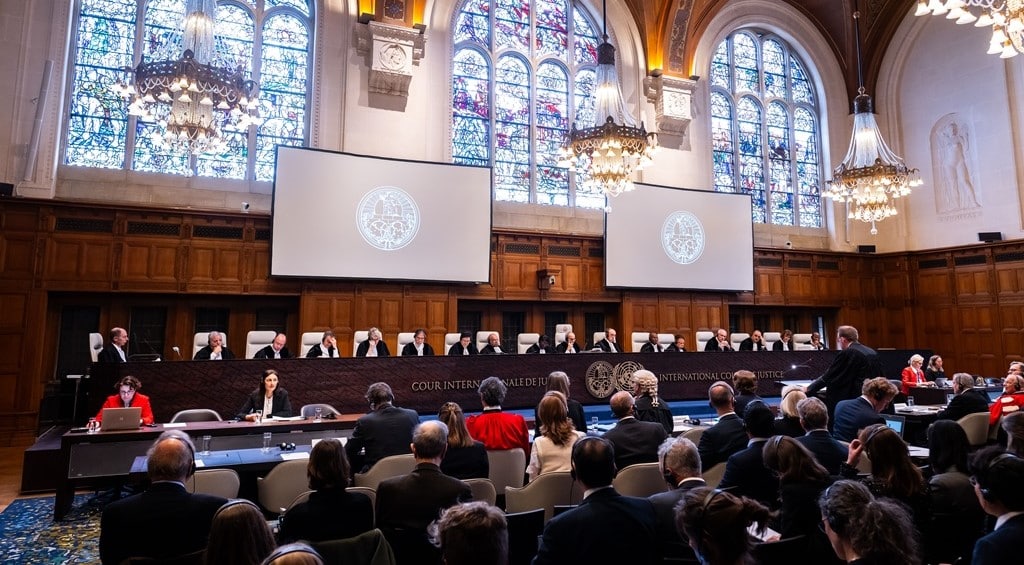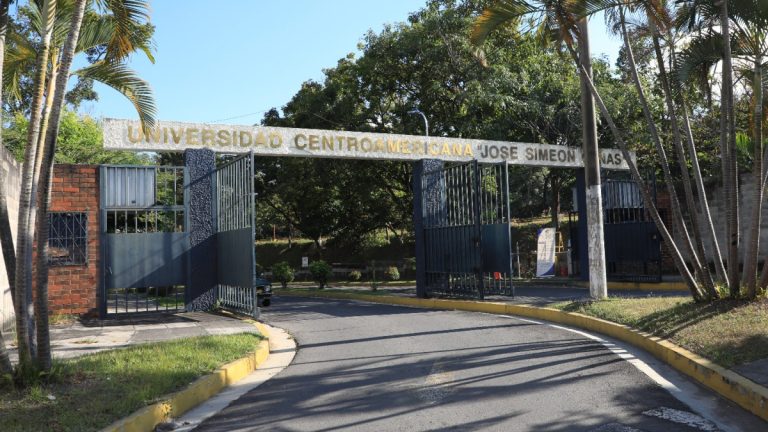2 de septiembre 2023

ICJ Rules Against Nicaragua's Request For Germany to Halt Arms Sales to Israel

PUBLICIDAD 1M
PUBLICIDAD 4D
PUBLICIDAD 5D
“We’ll do everything possible to help them continue their studies,” promised the UCA in El Salvador and the Landivar University in Guatemala

Outside view of the UCA in El Salvador. Photo from social media.
Two Jesuit Universities in Central America – The “José Simeón Cañas” Central American University (UCA), of El Salvador, and the “Rafael Landívar” University (URL) in Guatemala, have confirmed their willingness to offer an academic option to displaced students from Nicaragua’s confiscated Central American University (UCA). Students from the Managua UCA will be allowed to continue their studies in either of those two centers.
On August 15, Judge Gloria María Saavedra, in obedience to orders from Daniel Ortega, accused the university of being a “center of terrorism” and ordered the entire campus and all its assets to be confiscated. There was no evidence, no appeal, not even a mock trial, like the ones staged in previous years.
The result is that hundreds of students have sought options to continue their studies at a prestigious university, but not at the now State-run “Casimiro Sotelo” University, as their confiscated center was rapidly renamed by the Ortega regime. Some 600 students sought and obtained enrollment at the Army’s Americana University (UAM) in Managua, only to be expelled from there a few days later, on orders of Rosario Murillo.
A larger group (around two thousand, according to the most recent data), contacted the Salvadoran and Guatemalan universities through various channels, asking to be allowed to continue their studies in these centers. This led to the creation of a committee, made up of personnel from both universities, to develop a work plan, establish criteria for analyzing the cases they’re receiving, and coordinate strategic actions for the remainder of the year, announced the inter-institutional commission from both higher education centers.
The work of that committee, “will allow us to respond adequately to the requests that have been sent to us,” the two universities explained in a joint statement. In this communication, they also promised to “do everything within our means, so that [the Nicaraguan students] can continue their studies.” In order to do so, they asked all those who are interested in studying at the UCA located in El Salvador, to fill out this form, while those who prefer the Guatemala university can fill out the following, separate form.
“Both universities feel it’s essential to attend to the academic and human needs of the former UCA student body, who have asked for support and guidance. While it will certainly take time before we can respond to each application, due to the diversity and large number of cases (over two thousand), we’ll do everything necessary to receive all those students who have completed the admissions process, which will be defined and communicated shortly, in the first academic cycle of 2024,” the statement added. For both universities, that cycle will begin in January 2024.
However, they clarified that students must also fulfill “the national norms regulating the functioning of each institution.” These include legal and academic requirements, as well as those of immigration.
“It’s important to note that, due to legal requirements, all those who apply through this process, regardless of their level of advance at the UCA of Managua, are expected to take at least one year of subjects and to follow the graduation process of either the UCA of El Salvador or at the URL of Guatemala,” the statement clarified. They urged all those interested to complete the indicated forms as soon as possible, “in order to collect data that will allow us to identify possible solutions” for each case.
This article was originally published in Spanish in Confidencial and translated by Havana Times.
PUBLICIDAD 3M
Periodista nicaragüense, exiliado en Costa Rica. Durante más de veinte años se ha desempeñado en CONFIDENCIAL como periodista de Economía. Antes trabajó en el semanario La Crónica, el diario La Prensa y El Nuevo Diario. Además, ha publicado en el Diario de Hoy, de El Salvador. Ha ganado en dos ocasiones el Premio a la Excelencia en Periodismo Pedro Joaquín Chamorro Cardenal, en Nicaragua.
PUBLICIDAD 3D